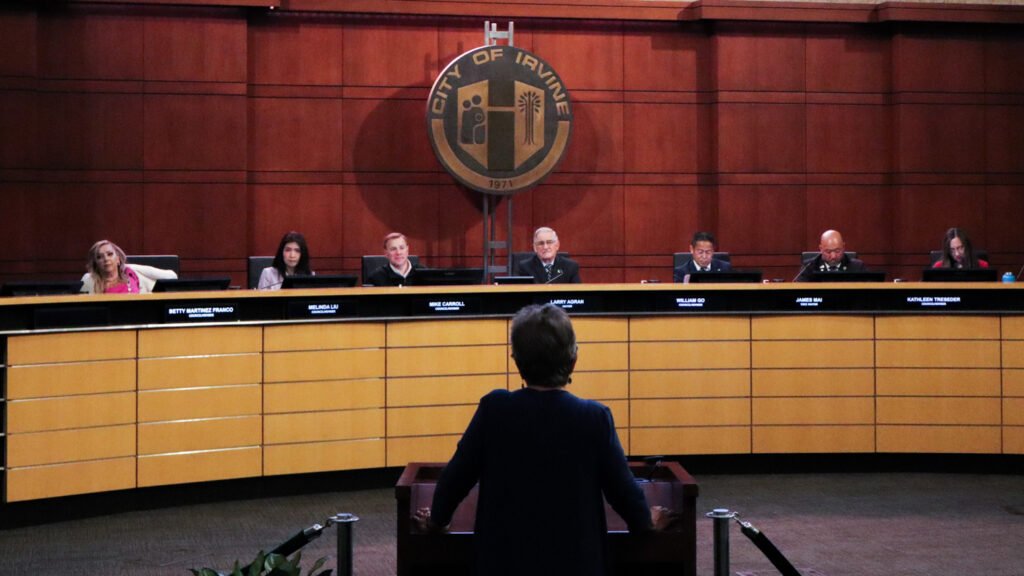Sober Living Homes in Irvine Face Increased Regulation Amid Community Concerns
In July 2024, a tragic incident unfolded within the walls of a sober living home in Irvine, California—a resident was charged with the murder of another. This shocking event soon rippled through the local community, igniting a wave of concern among residents. For Councilmember Melinda Liu, the reality struck close to home; her friends lived mere blocks away. “When the news broke, I checked the address and realized it’s so close to where some of my friends live with their kids,” she recalled during a recent city council meeting.
Growing Call for Regulation
The call for stricter oversight of sober living facilities in Irvine has gained momentum following a legal victory in neighboring Costa Mesa that affirmed local jurisdictions’ authority over such homes. Councilmember Liu’s recent proposal reflects a community grappling with the balance between compassion for those in recovery and the safety of neighborhoods. “We need regulations that protect both residents and the patients who deserve proper care. Many homes lack supervision and the necessary support systems,” Liu stated.
As a part of Liu’s proposed ordinance, the Irvine City Council has supported plans for a 1,000-foot minimum buffer between sober living homes, along with a mandate for round-the-clock on-site management. “Our current enforcement merely requires a business license, which is insufficient for the needs of our community,” explained Stephanie Frady, director of community development in Irvine. “We’ve identified eight sober living homes in the area, and that means a significant responsibility to ensure they are run safely.
Legal Precedents and Local Responses
The issue of sober living homes is not unique to Irvine; it reflects a broader trend across Orange County. In Costa Mesa, city officials enacted a sober living ordinance in 2014, establishing a minimum buffer of 650 feet between group homes. This prompted legal battles, including a notable case involving Ohio House—a treatment center that fought claims of unlawful discrimination against its disabled residents. The Ninth Circuit Court of Appeals upheld the city’s regulations in a December 2024 ruling, setting a significant legal precedent.
- Expanded zoning regulations: Costa Mesa’s adjustments included requiring special permits for homes housing seven or more occupants.
- Tracking and enforcement: Cities like Mission Viejo have adopted specific rules, focusing on permit processes and parking regulations.
- Neighborhood consultations: Reports, such as one from the OC Grand Jury, indicate that cities must better manage the locations of these homes to reduce neighborhood disruption.
In the wake of rising tensions and incidents, cities have increasingly recognized the need to take decisive action. Officials in Fountain Valley and Buena Park have also tightened regulations on sober living homes following the findings of the OC Grand Jury’s report, which pointed out significant concerns over the concentration of these facilities.
Community Voices and Consequences
Irvine City Council’s discussions have sparked a widespread conversation among residents. Not everyone is in favor of enhanced regulations. Local advocate Sarah Martinez, herself a recovering addict, argues, “Increased regulations can sometimes lead to stigma and make it harder for those seeking help. We need to focus more on quality of care than just limiting their numbers.” Studies have shown that well-regulated sober living arrangements often contribute positively to recovery outcomes, suggesting that the approach to enforcement should also be nuanced.
“More than just regulations, what we need are meaningful support and resource systems for these individuals,” said addiction specialist Dr. Mark Thompson, who has conducted comprehensive research on the impacts of sober living environments. “The goal should always be recovery, not exclusion.” This sentiment echoes in the community, stressing the importance of finding a balance between accountability and support.
Looking Ahead
During a recent city council meeting, Mayor Larry Agran acknowledged both the merits and challenges associated with sober living homes. Living adjacent to one himself, he emphasized, “The fact that there are sober living homes in our city—that’s a good thing, as long as they’re properly regulated.” Discussions also included the possibility of imposing fines for multiple police calls to the same facility within a short time frame, an effort aimed at ensuring compliance and safety.
As the Irvine City Council prepares to draft new regulations, the ideal outcome would weave the fabric of the community more tightly together. With council members set to discuss these directives at future meetings, the hopes of many residents hinge not only on increased regulation but also on fostering an environment conducive to recovery for those in need. Balancing safety and compassion remains the crucial challenge ahead, as the city seeks to navigate these complex waters.





